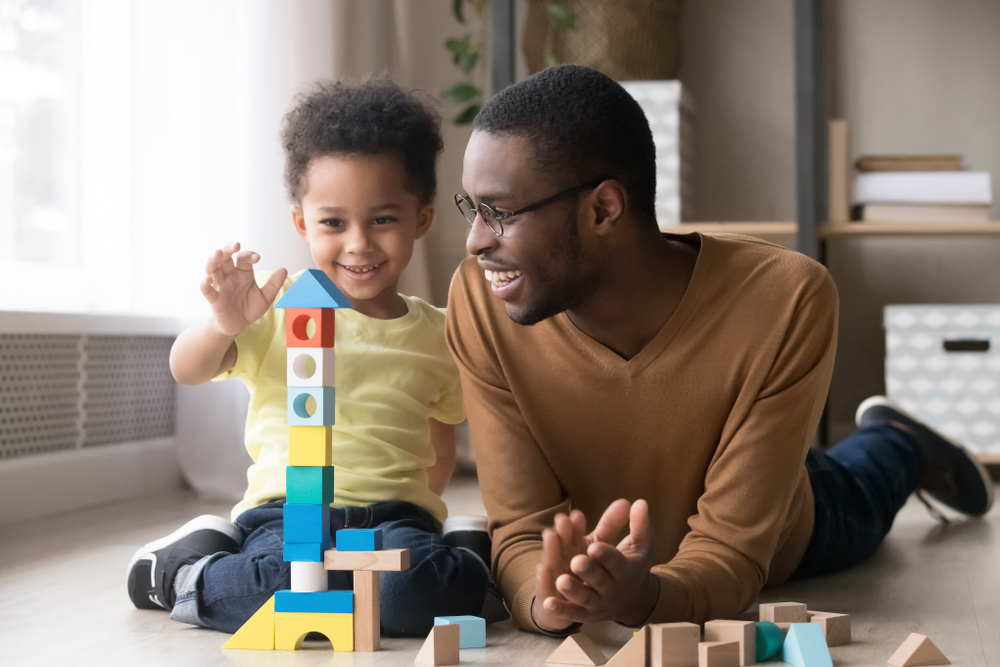Historical Knowledge Normal History Worksheets for Ages 3-7
6 filtered results
-
From - To
Explore our engaging "Historical Knowledge Normal History Worksheets" designed for young learners aged 3-7! This resource introduces children to foundational concepts in history through fun, interactive activities that encourage critical thinking and curiosity about the past. With vibrant illustrations and age-appropriate content, these worksheets help kids develop essential skills such as recognizing historical figures, understanding timelines, and appreciating cultural diversity. Ideal for parents and educators, our worksheets foster a love for learning while making history accessible and enjoyable. Dive into the past with your little ones and spark their imagination today!


White House Worksheet


Benjamin Franklin Worksheet
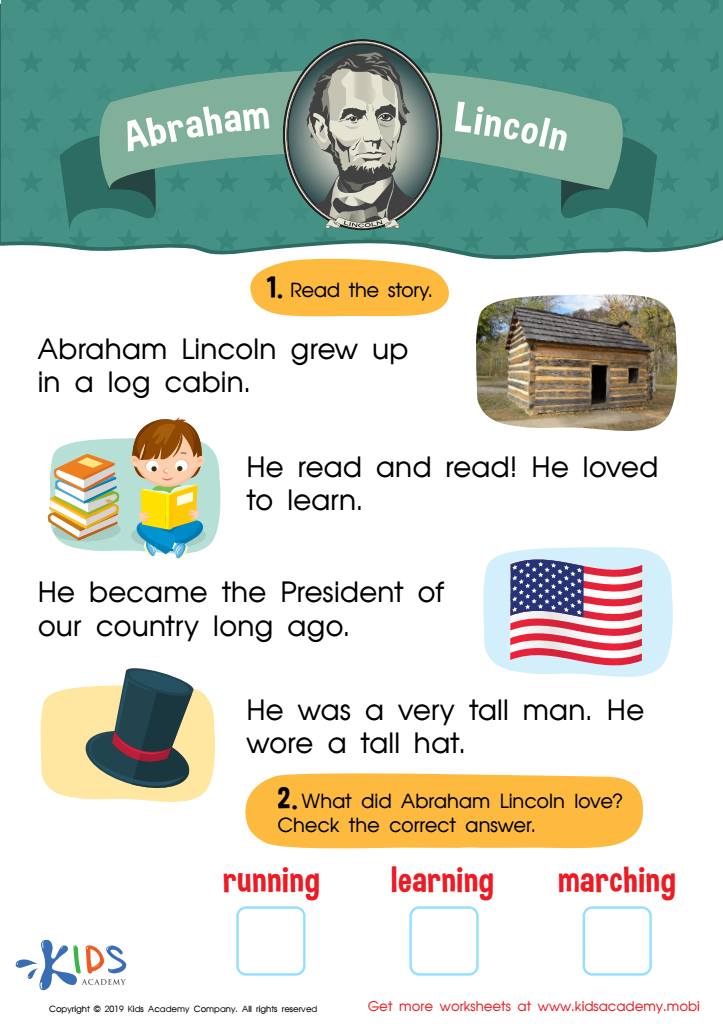

Abraham Lincoln Worksheet
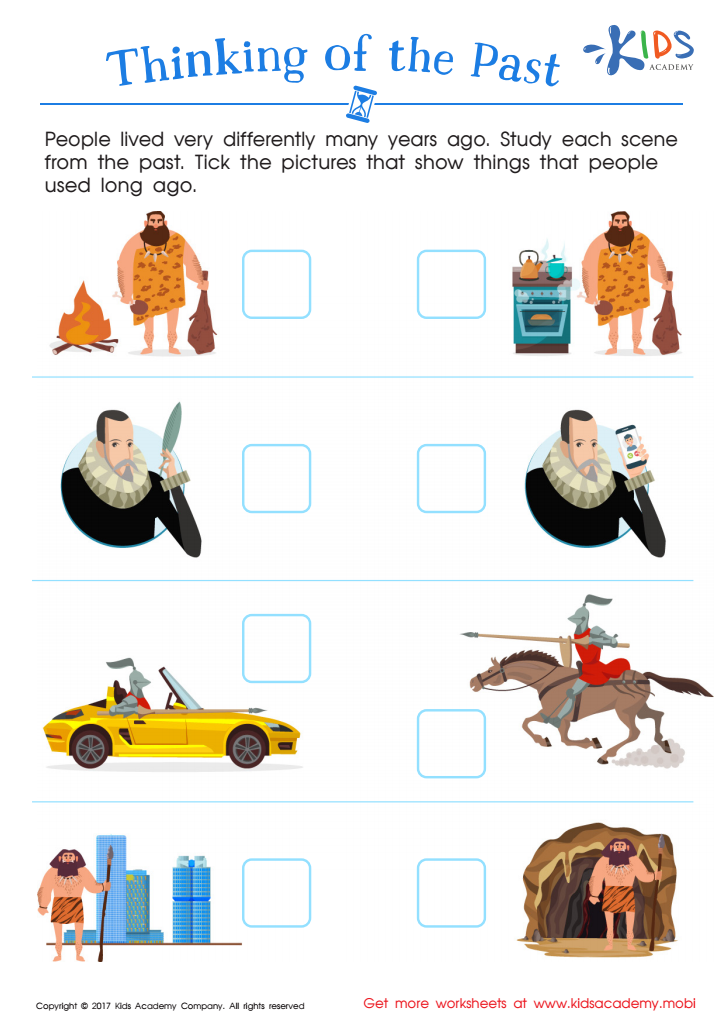

Thinking Past Printable
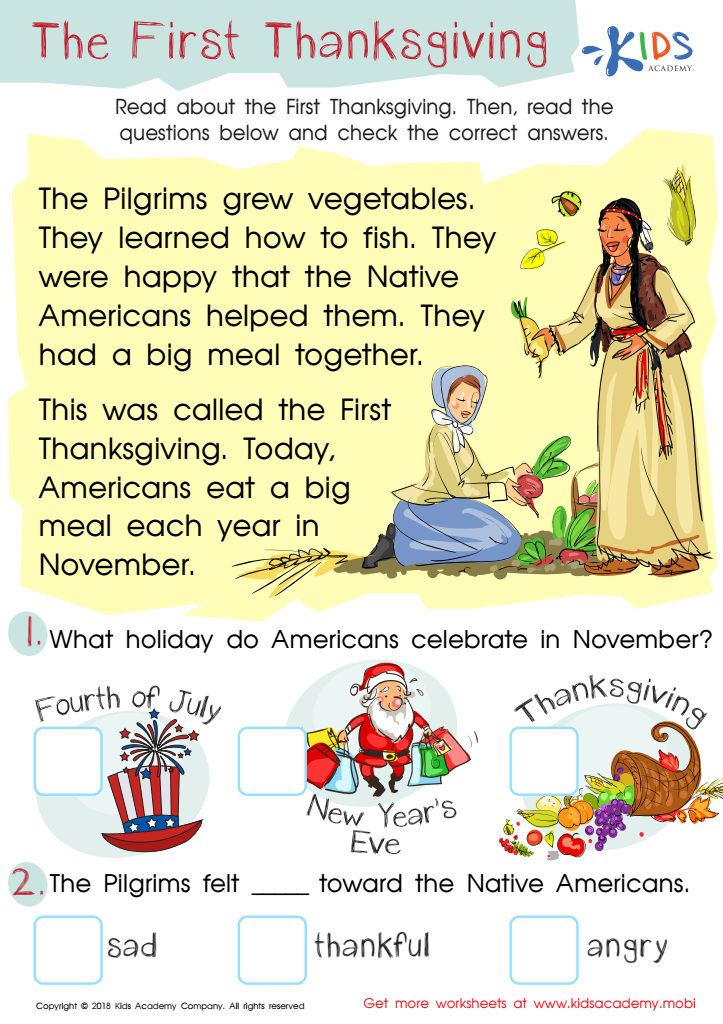

Assessment: First Thanksgiving Worksheet
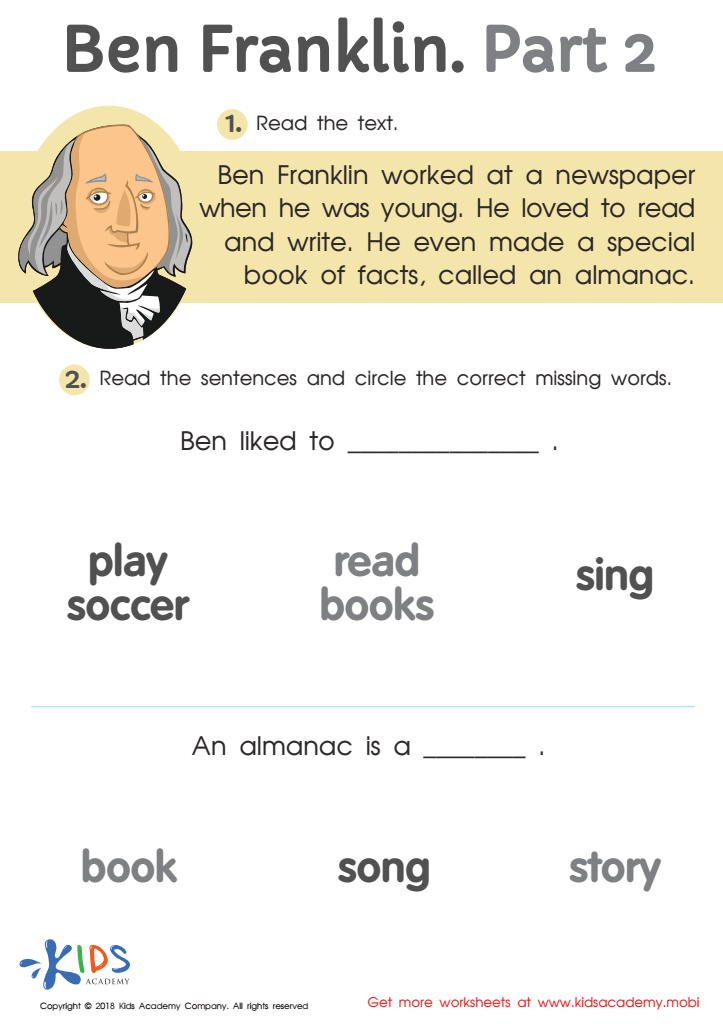

Ben Franklin Part 2 Worksheet
Understanding historical knowledge is crucial for children aged 3-7 as it lays the foundation for critical thinking and cultural awareness. Early exposure to history helps young learners develop a sense of identity, not only in relation to their own family background but also to the broader community and world. When teachers and parents incorporate historical knowledge into activities, it promotes curiosity and engagement, nurturing an intrinsic desire to learn.
At this age, children are naturally curious, and connecting them with stories of the past — such as influential figures, significant events, or cultural traditions — allows them to grasp concepts like time, change, and continuity. Engaging early with history cultivates empathy and an understanding of diversity, essential skills in our interconnected world.
Additionally, history enriches language development, as discussing stories from the past introduces children to new vocabulary and improves comprehension. It also encourages them to ask questions, stimulating critical thinking skills vital for future learning.
Finally, teaching history to young children can foster values such as respect, responsibility, and stewardship, instilling a sense of belonging in the community and the world. Engaging them in historical narratives creates a more informed, understanding generation capable of contributing positively to society.
 Assign to My Students
Assign to My Students







